How to Care for Hyacinths: The Secret to Spectacular Spring Blooms
Plant bulbs, force flowers, and keep your hyacinths blooming with this comprehensive care guide.

Bonnie L. Grant
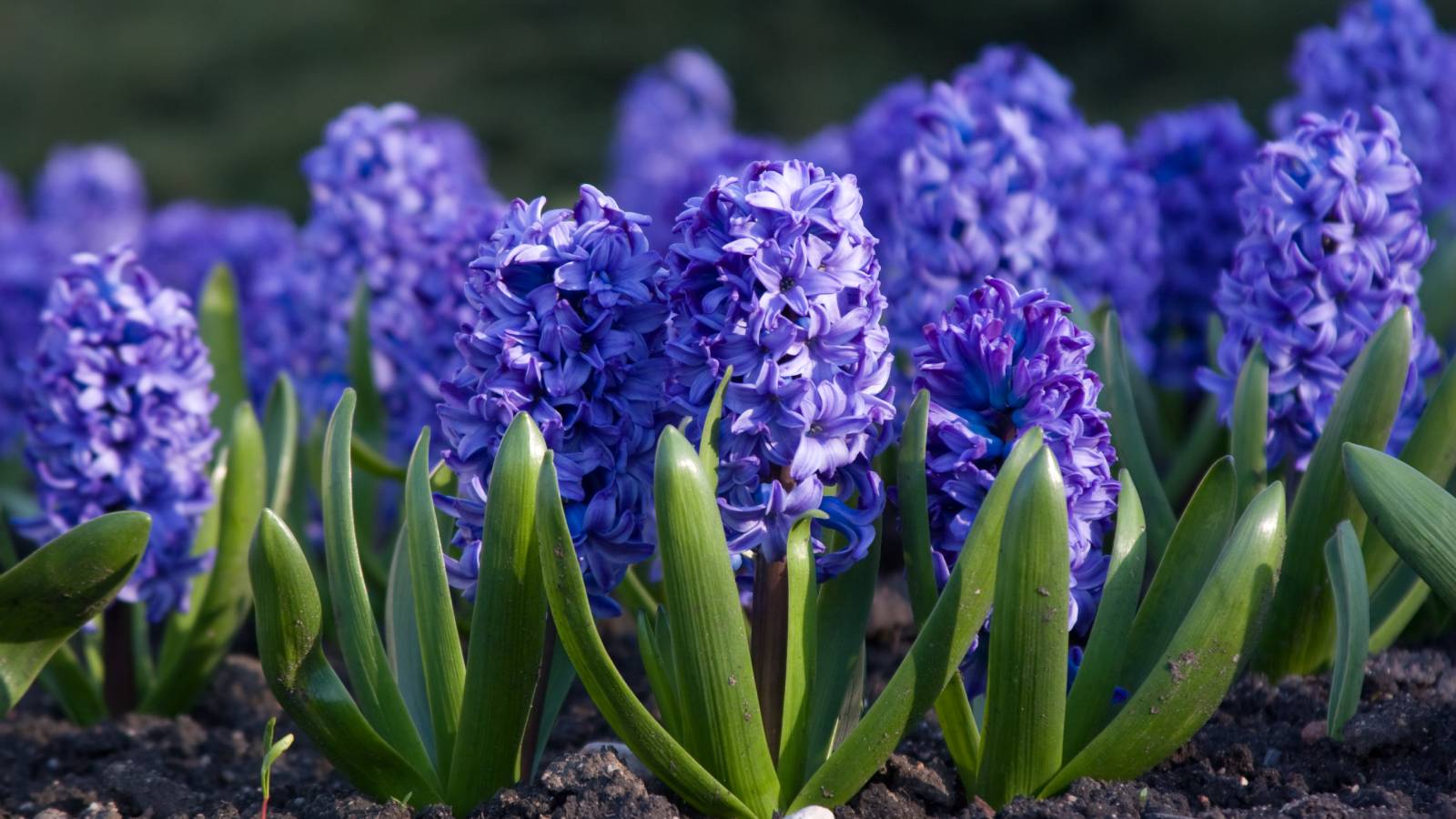
Sign up for the Gardening Know How newsletter today and receive a free copy of our e-book "How to Grow Delicious Tomatoes".
You are now subscribed
Your newsletter sign-up was successful
One of the earliest spring bulbs is the hyacinth. It usually appears after crocuses but before tulips, and has old-fashioned charm combined with a sweet, subtle scent. That signature fragrance is popular in French perfume, and the flowers are an important part of Persian New Year celebrations.
In the garden, hyacinths are some of the most reliable types of bulbs you can plant – a lovely signal that spring has arrived and colorful flower displays are just getting started.
Hyacinth Quick Facts
Botanical Name | Hyacinthus orientalis |
Plant Type | Bulb |
Height | 6-10 in (15-25 cm) |
Spread | 3-6 in (8-16 cm) |
Light | Full sun to light shade |
Soil | Well draining; pH 6.0-7.0 |
Growing Zone | USDA zones 4 to 8 (Not in the US? Convert your growing zone) |
Flowers | Spring |
Native Range | Eastern Mediterranean; Middle East |
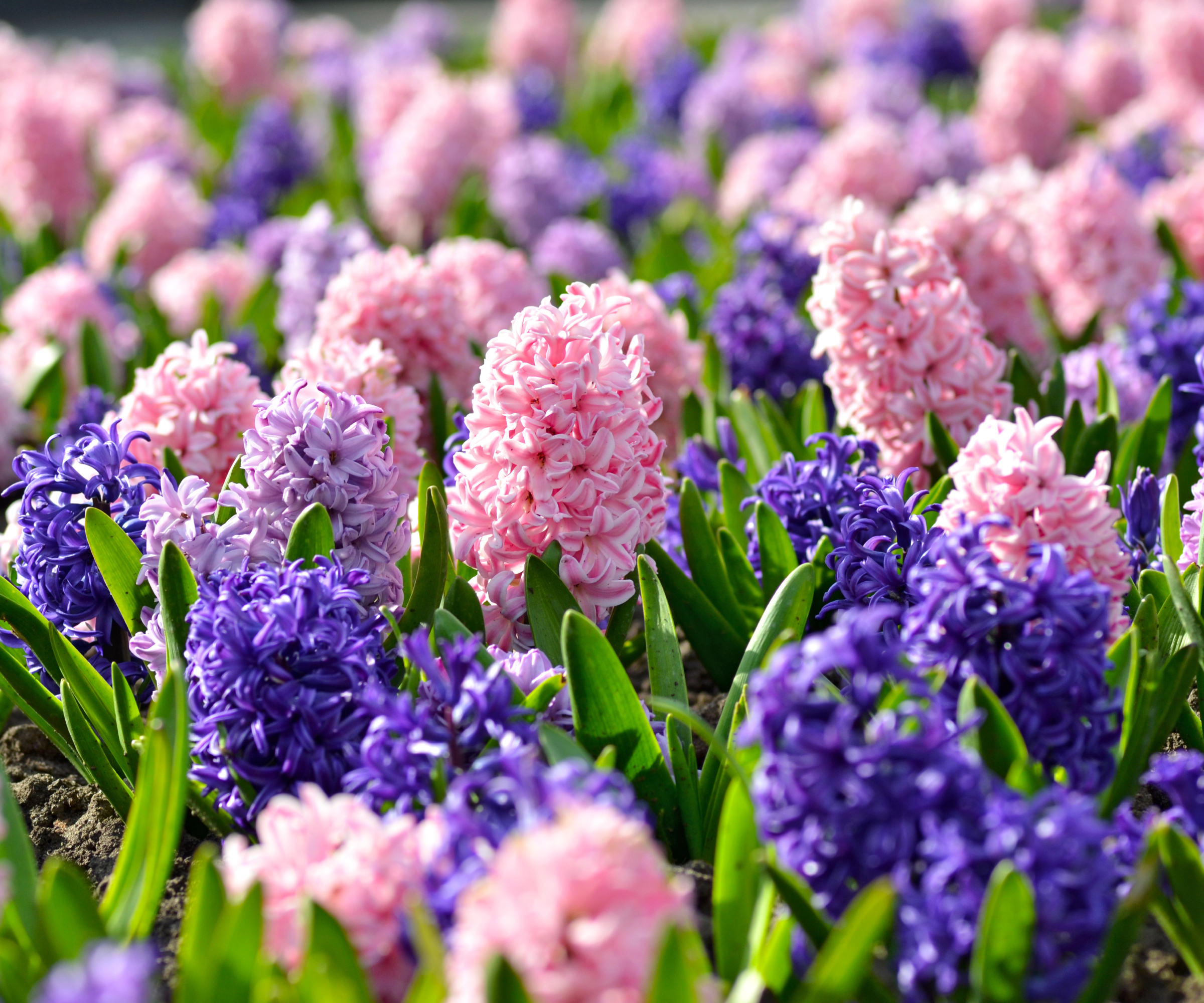
Hyacinth Planting Guide
Hyacinths bloom early in the spring, which means their bulbs need to be planted the autumn before. Plant hyacinth bulbs 6-8 weeks before the first hard frost date, or when the ground temperature drops to 50-55 F (10-13 C). For many gardeners, this falls in September through October. This gives the bulbs enough time to establish roots before winter dormancy.
Hyacinths crave full sun, so plant them where they will receive at least 6 hours of sunlight per day. They can tolerate partial shade, but the flowers might not be quite as impressive. However, in especially hot climates, a break from the afternoon sun is welcome.
Hyacinths need loose, well-draining soil – soggy soil can lead to bulb rot. If your soil is heavy or poorly draining, amend it with compost or other organic matter. A little grit will provide extra drainage. Or you can avoid the problem altogether by planting your hyacinths in pots, where they perform very well.
Follow these steps to plant hyacinth bulbs:
- Loosen the soil and space your bulbs 5 inches (13 cm) apart.
- Dig a hole for each bulb. When planting bulbs, the depth should be 4-5 inches (10-13 cm), or a good rule of thumb is 2 to 3 times the bulb's height. A bulb planting tool, such as this Edward Tools bulb planter from Amazon, makes it quick and easy.
- Put your bulbs into the holes with the pointy end up, and the flat (root) end pointing down. Then backfill the hole with soil and gently firm it down to remove air pockets.
- Add a label so you don't forget where you planted your hyacinths.
- Water thoroughly to settle the soil, and only again if the autumn is very dry.
- A light mulch is optional, but it can help suppress weeds and protect against hard frosts.
How to Care for Hyacinths
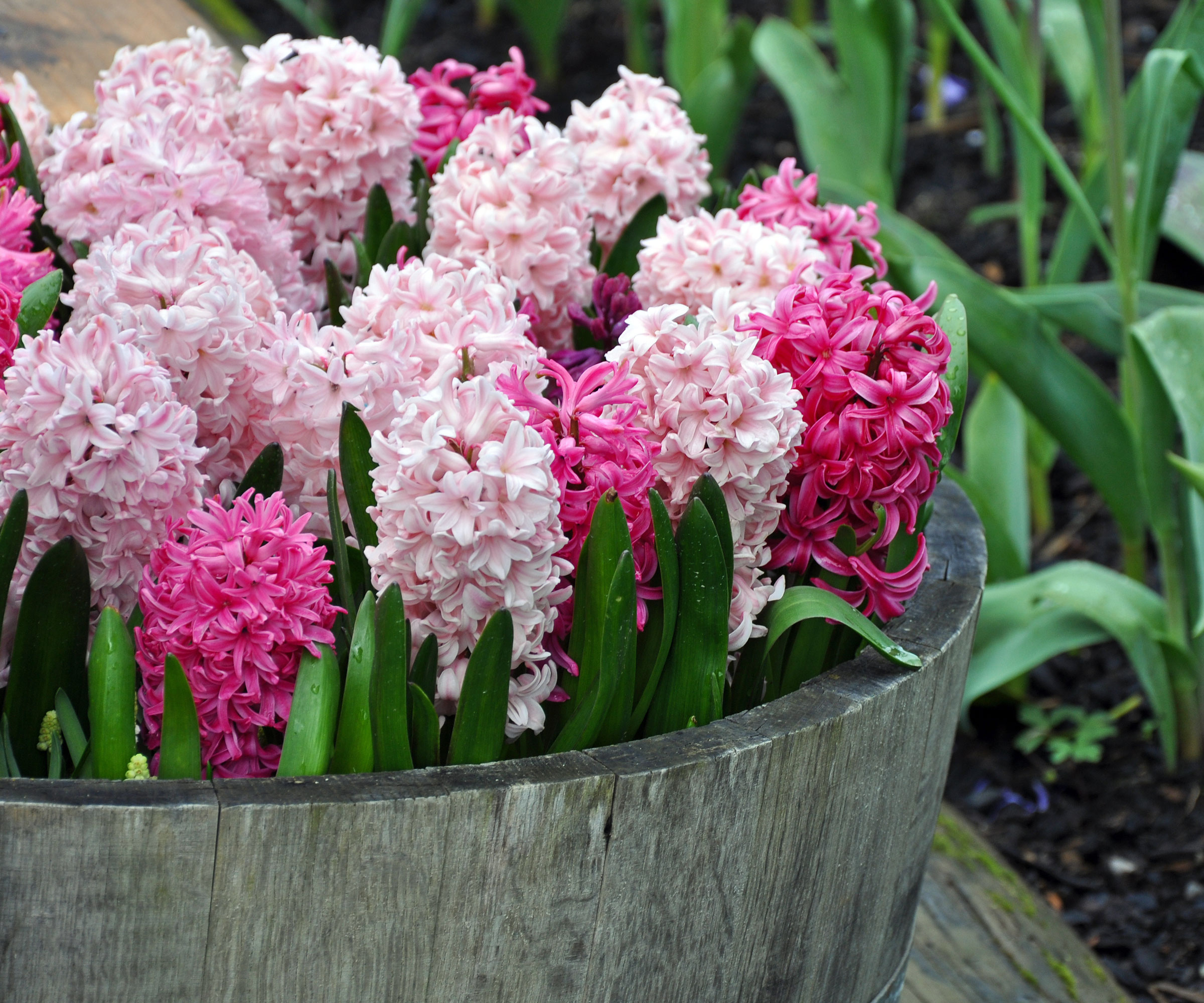
Once they’re in the ground, hyacinths are hands-off plants that require very little maintenance. During the growing season (early to mid-spring), you should keep the soil moist but not soggy. If your garden is anything like mine, this shouldn’t be a problem, as snowmelt and spring showers keep everything good and wet this time of year.
Sign up for the Gardening Know How newsletter today and receive a free copy of our e-book "How to Grow Delicious Tomatoes".
Fertilize your hyacinths lightly with a slow-release bulb fertilizer as soon as the shoots first appear, and again right after flowering, to replenish bulb energy for next spring and keep hyacinths blooming year after year. A regular balanced fertilizer works just fine, or you can opt for a bulb-specific fertilizer like this one on Amazon. It’s a bit heavier in phosphorus, which promotes good flower production.
Pruning Hyacinths
Pruning hyacinths is simple, but it contains an important distinction. Deadheading is fine. This involves cutting the flower stem off at the base to make the plant look neater and prevent it from expending unnecessary energy on seed production. (If you’re looking to save seeds, obviously, skip this step!)
Pruning the foliage, however, is another matter. Once your hyacinths are done blooming, don’t cut the leaves back! Water normally, and let the foliage stay in place for several weeks until it yellows and withers on its own. This extra time gives the plant the chance to photosynthesize and store up energy in its bulb. This is how it makes it through the winter and produces beautiful flowers again the following spring.
If you're growing hyacinths in pots or forcing them indoors, the same rules apply –remove the spent flowers right away, but leave the leaves until they naturally fade. Removing leaves too early can weaken the bulb and make next year’s blooms lackluster.
Hyacinth Care Calendar
| Row 0 - Cell 0 | Spring | Summer | Fall | Winter |
Plant bulbs | Row 1 - Cell 1 | Row 1 - Cell 2 | ✓ | Row 1 - Cell 4 |
Divide | Row 2 - Cell 1 | ✓ | Row 2 - Cell 3 | Row 2 - Cell 4 |
Deadhead | ✓ | Row 3 - Cell 2 | Row 3 - Cell 3 | Row 3 - Cell 4 |
Cut back foliage | Row 4 - Cell 1 | ✓ | Row 4 - Cell 3 | Row 4 - Cell 4 |
Dig up | Row 5 - Cell 1 | ✓ | Row 5 - Cell 3 | Row 5 - Cell 4 |
Pre-chill | Row 6 - Cell 1 | Row 6 - Cell 2 | Row 6 - Cell 3 | ✓ |
Force indoors | Row 7 - Cell 1 | Row 7 - Cell 2 | ✓ | ✓ |
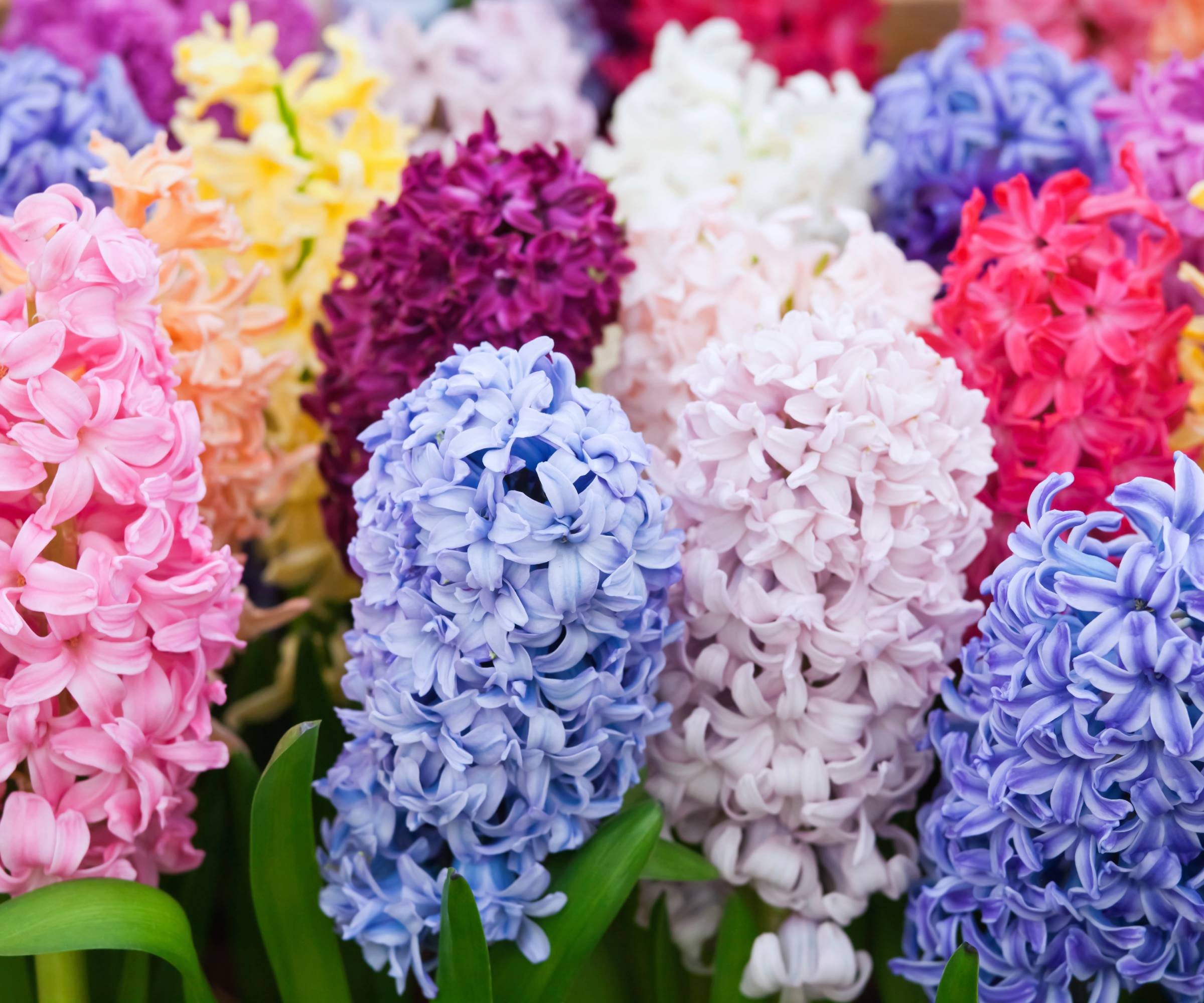
Types of Hyacinths
The most frequently grown species is Hyacinthus orientalis, also known as Dutch or common hyacinth. These are the iconic spring-blooming varieties found in gardens, containers, and floral displays. They’re known for their vibrant colors and strong fragrance.
There are around 50 hyacinth cultivars in commercial circulation today. Some popular ones include:
- ‘Blue Jacket’ – deep cobalt blue, very fragrant
- ‘Amethyst’ – bright pink with a sweet scent
- ‘Carnegie’ – pure white with a classic look
- ‘Woodstock’ – rich purple, intensely fragrant
Propagating Hyacinths
The most common method of hyacinth propagation is by bulb offsets. These are small “baby” bulbs that grow from the main bulb underground. After a few years, you’ll want to divide your hyacinths by separating these offsets. This is good for creating new plants, and also for preventing overcrowding.
Wait until your hyacinth’s dormant period – this is after the flowers have faded and the foliage has died back, usually summer. Dig up your bulb and, using your hands, carefully pull the offsets away from the main bulb. Replant each new separate bulb in its own spot, following the general planting instructions above. It may take a couple years for the offset bulbs to mature and produce large blooms.
Although hyacinth seed propagation is possible, it’s not popular, especially among home gardeners. Hyacinths grown from seed take many years to mature enough to bloom and, when they finally do, chances are they’ll look and smell nothing like their parent plant. Unless you’re up for a challenge or interested in breeding your own hyacinth varieties, you’re better off with division propagation.
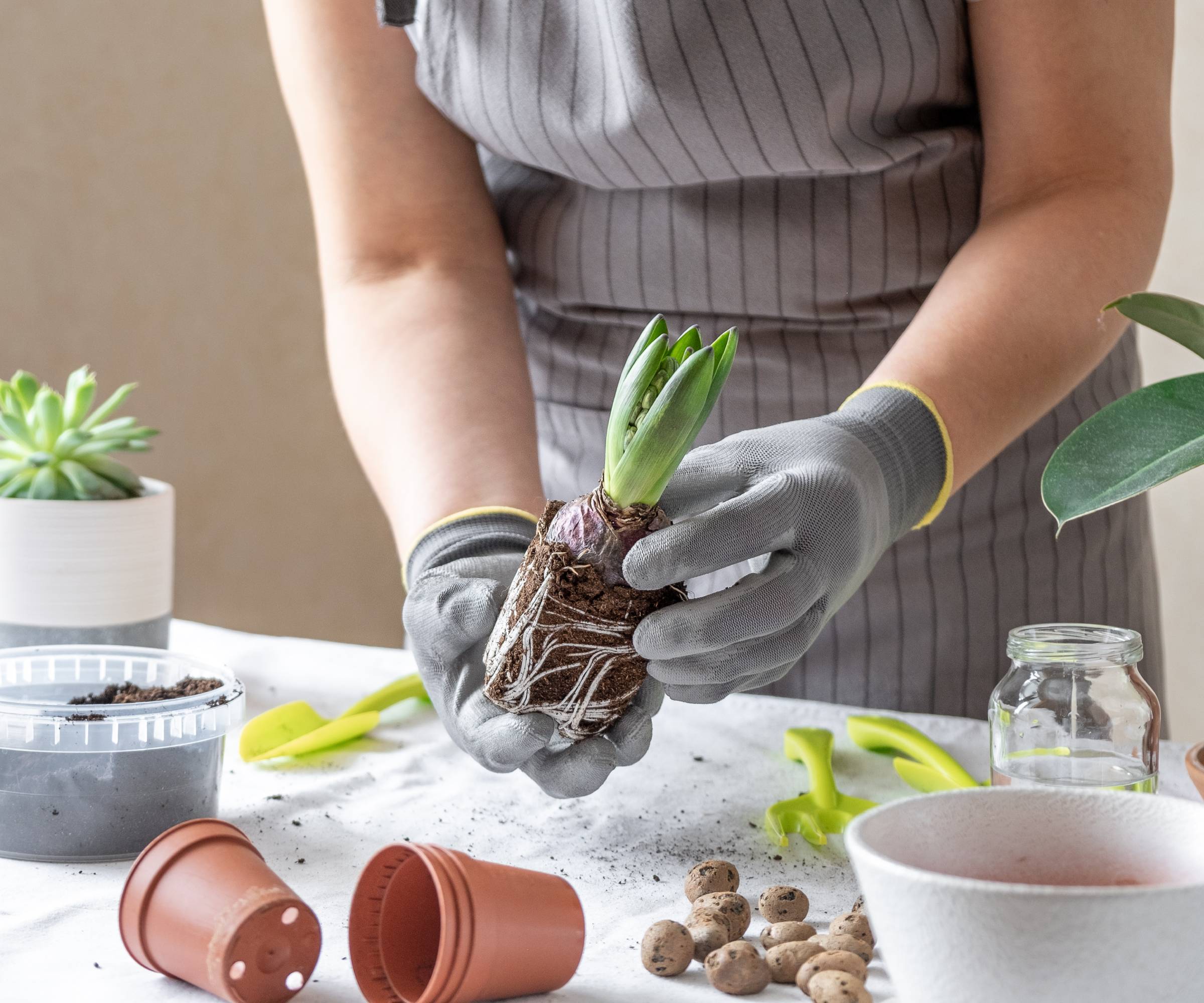
Overwintering Hyacinths
Hyacinths are very cold tolerant, hardy in USDA zones 4-8. This means they should be able to survive the winter in most parts of the US. But if you live in a colder zone, or if you have especially poorly draining soil, it’s a good idea to lift your hyacinth bulbs and store them inside for the winter, to protect them from rot or extreme temperatures.
Wait until the foliage has completely died back, then dig up the bulbs carefully, brush off the soil, and store them in a cool, dry, well-ventilated place (like a paper bag in a basement or garage).
If you're in a warm climate (zones 9 and above), you’ve got the opposite problem – your winters aren’t cold enough. Hyacinths need to experience a prolonged cold period every year in order to bloom. That means you have to artificially pre-chill the bulbs.
To pre-chill your bulbs, follow the steps above for digging up and storing them. Then, about 12-16 weeks before planting time, place your bulbs in a refrigerator (35-45 F or 2-7 C) and leave them there until planting time. If there’s fruit in your fridge (especially apples!) place your bulbs in a plastic bag. Fruit gives off ethylene gas, which can throw off flower development.
Common Hyacinth Problems
Hyacinth bulbs are generally problem-free. Rabbits tend to ignore them, and diseases are few and far between. The most common problems are environmental, with wet soil taking the lead. This can result in bulb rot, which leads to brown hyacinths and eventually dead plants. Make sure you plant hyacinth bulbs in well-draining soil, growing them in containers if necessary.
Lackluster flowering or bud drop can occur if the bulbs weren’t exposed to enough chill hours, like if you’ve had a particularly mild winter.
Flower displays will naturally decrease over the years, and you may never have a display as impressive as that first one. Revitalize your hyacinths by dividing them and by supplementing with some new bulbs each year.
Forcing Hyacinths Indoors
Forcing is the process of tricking plants to flower indoors out of season, and it’s a great way to brighten up your house during the depths of winter. Forcing hyacinths indoors is very popular, mostly because it’s so easy.
You can force hyacinths by buying pre-chilled bulbs, or by storing regular bulbs in the fridge for 12-16 weeks before planting.
Toward the end of this chilling period, yellow shoots should be starting to emerge from the bulbs. Once this happens, pot them up with the top of the bulbs resting above the soil line. Or, place them just touching the water line in one of these bulb forcing vases on Amazon.
Move your pot to a cool area (around 50 F or 10 C) with low light, and water regularly. After several days in this state, the shoots should begin turning green. This is when you move them to a warmer, sunny location. Keep them well watered. Your hyacinths should be flowering 3-4 weeks after they come out of cold storage.
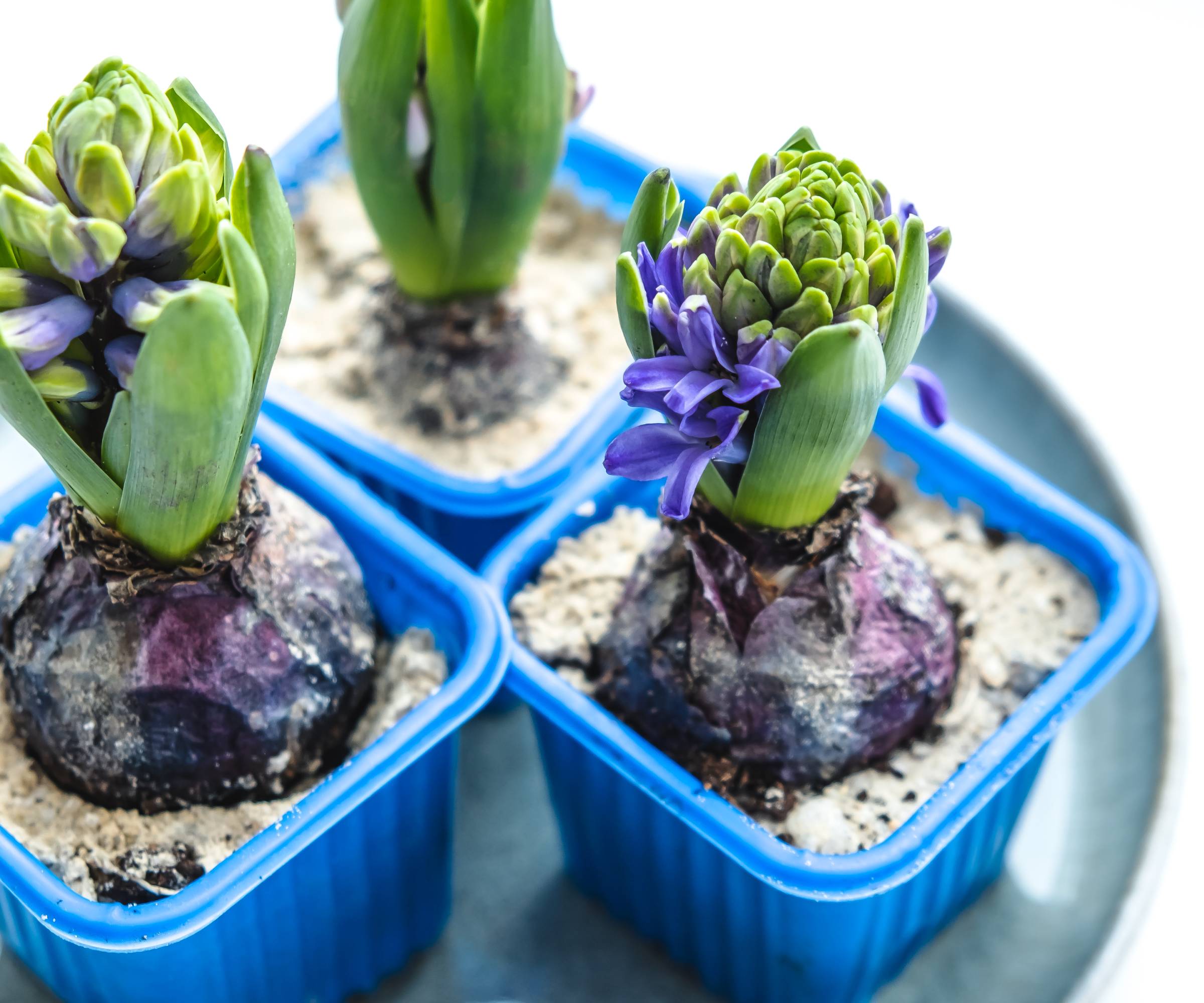
Aftercare for Forced Bulbs
Once your forced hyacinths have bloomed indoors, they may begin to fade quickly. Treat them just like you would outdoor flowers – deadhead the flower stalk but leave the foliage until it fades naturally.
After the foliage is cut back, you can try re-planting it outdoors. Lift it from the soil, let it dry out, and store it in a cool dark place until fall. Then plant it in the garden following the regular planting guidelines.
Be aware that the year after being forced, a hyacinth may produce smaller, less showy flowers. Don’t panic! It’s just getting reacquainted with a natural blooming schedule. Take good care of it, and it should perform better next year.
Growing Hyacinths in Containers
Hyacinths grow beautifully in pots, making them a great choice for patios, balconies, or small gardens. Choose a container that’s at least 6 inches (15 cm) deep with good drainage holes. Plant bulbs close together but not touching, at the same depth as you would in the ground (4-6 inches or 10-15 cm).
Keep container-grown hyacinths in a sunny, sheltered location during their growing season. Water when the top inch of soil feels dry, but be careful not to overwater – containers dry out faster than garden beds, but they’re also more prone to rot if poorly drained. After blooming, treat the bulbs as you would in the ground: let the leaves die back naturally before removing or storing the bulbs.
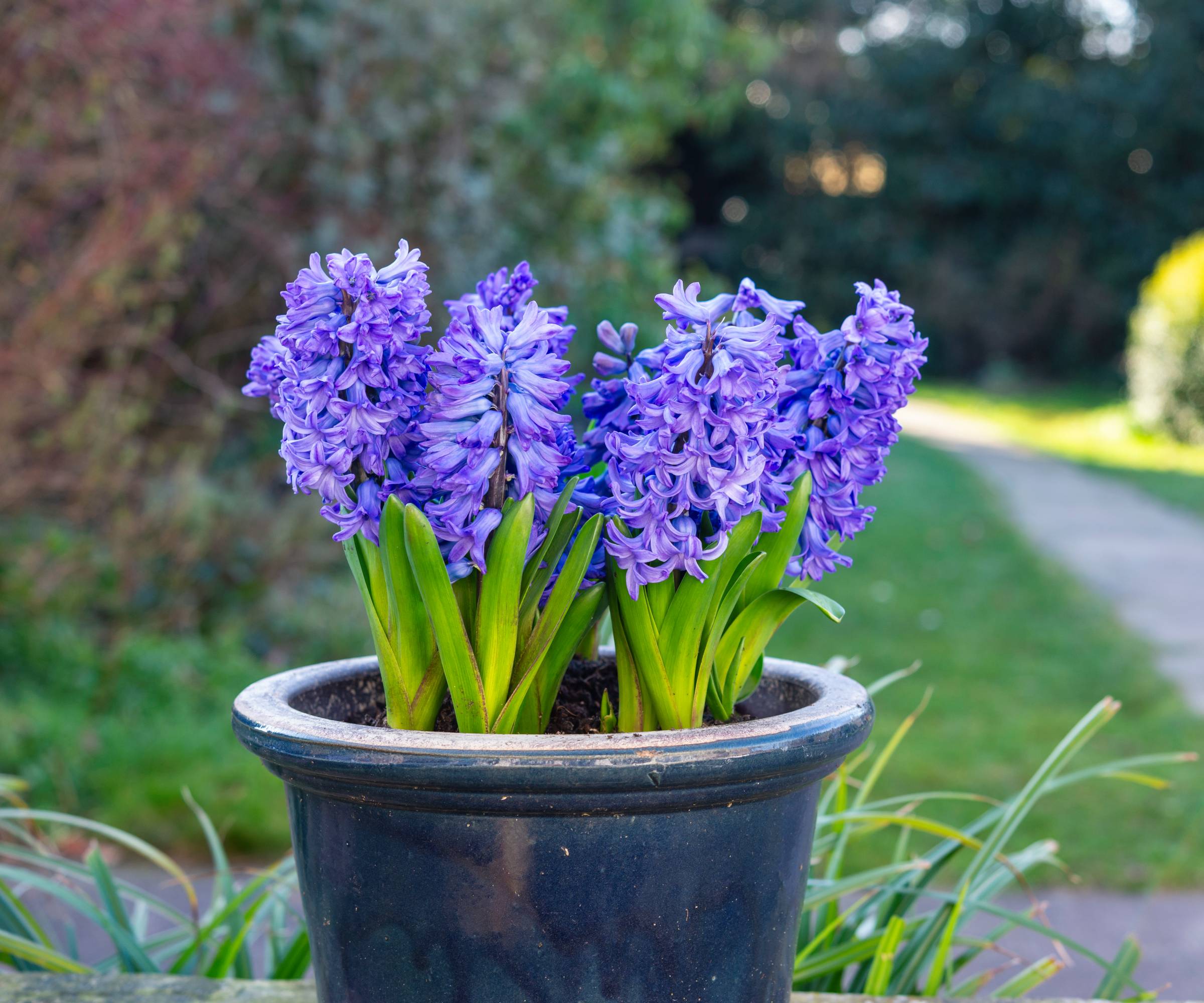
Hyacinths as Houseplants
If you're growing a hyacinth indoors, chances are good that you've been given it as a gift, or you've forced it to bloom out of season. Either way, you should place it in a cool, bright spot – ideally near a sunny window but away from direct heat sources like radiators and vents.
Hyacinths are spring bloomers, which means they prefer cooler indoor temperatures (60-65 F or 15-18 C) and moderate humidity. Water indoor hyacinths lightly, keeping the soil barely moist.
A word of warning: Hyacinth bulbs can be irritating to the skin and are toxic if eaten, so keep them out of the reach of children and pets.
Another word of warning: Hyacinths are prized for their scent, but indoors they can be a little cloying or overwhelming. If it gets to be too much, there’s no shame in moving them outside to give yourself a break.
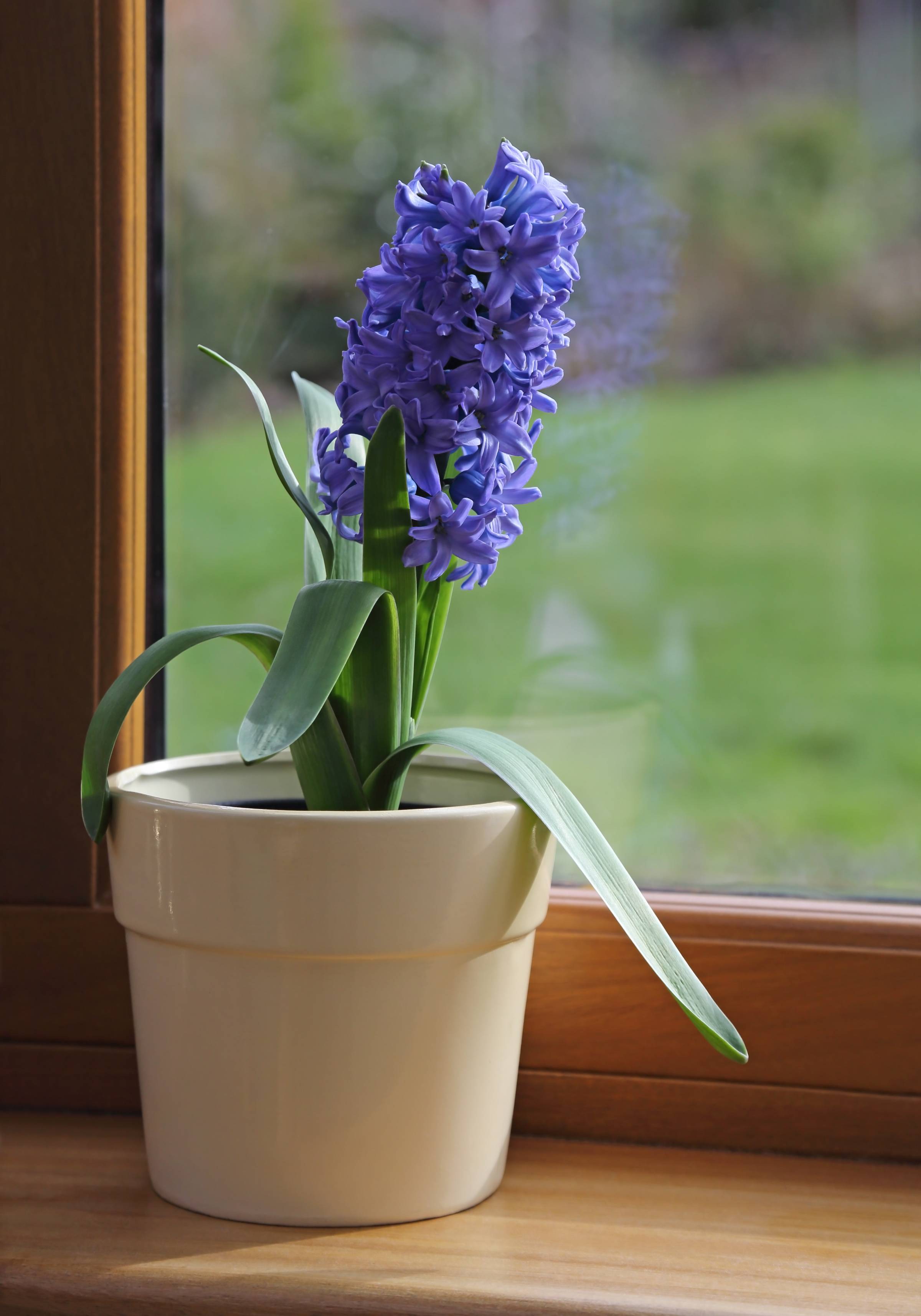
Hyacinth Companion Plants
Hyacinths bloom early in the spring, stick around as foliage, then slowly fade away. Grow them with these other plants for a seamless appearance through the whole season.
- Early Spring – Cluster hyacinths with other early spring bloomers like daffodils, tulips, and muscari for a gorgeous display.
- Late Spring – Cover up fading hyacinth foliage with low-growing, later blooming flowers like sweet alyssum, pansies, and violets.
- Summer – Fill in the space hyacinths leave behind with plants that bloom in the summer, like daylilies, coneflowers, and black-eyed Susans.
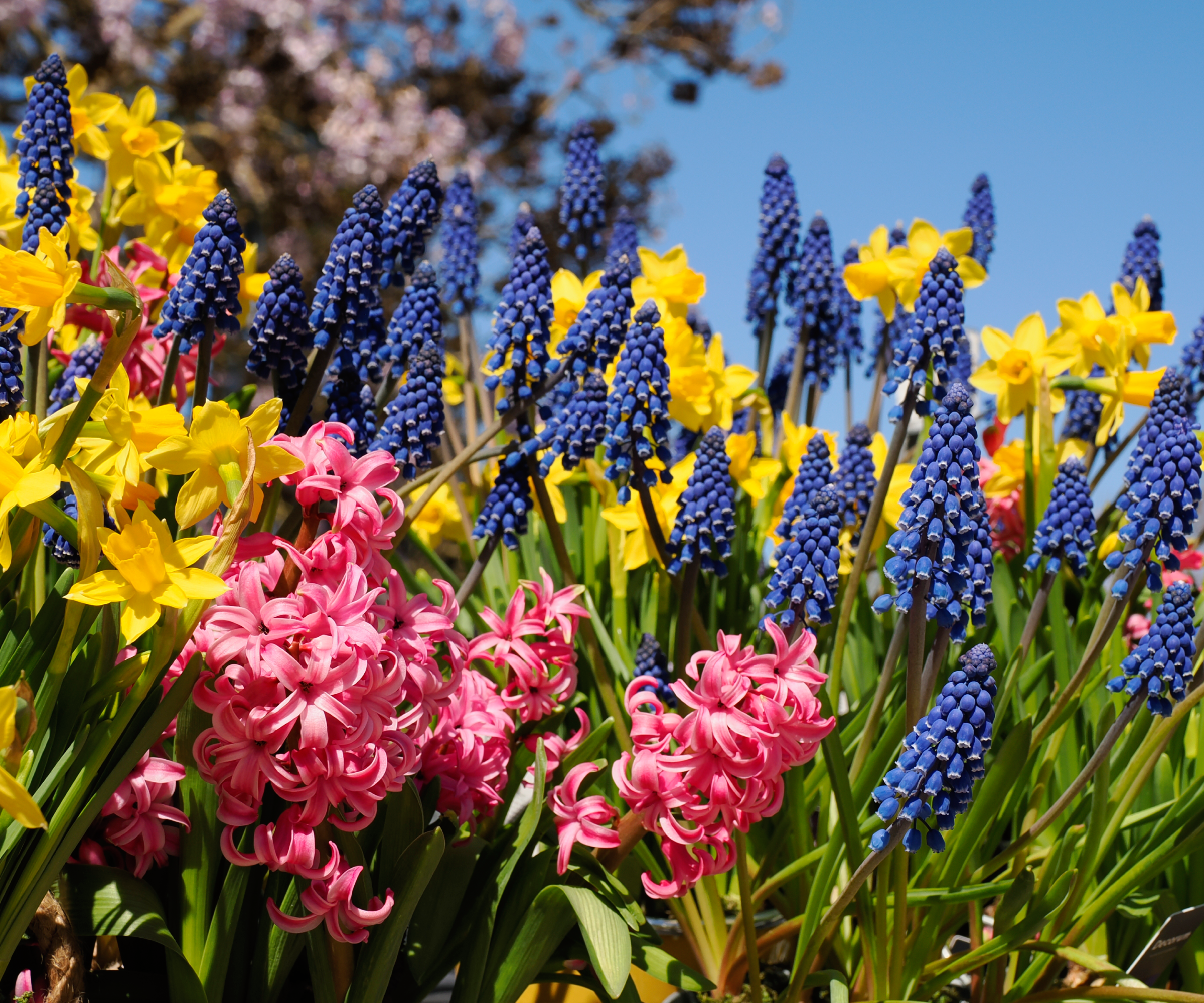
Frequently Asked Questions
Are hyacinths toxic to pets or humans?
Yes, hyacinths are toxic to dogs, cats, and humans, especially if ingested. Keep them away from children and pets.
Do hyacinths come back every year?
Yes, hyacinths are perennial bulbs that typically return season after season, though the flowers can become less showy after a few years. This is often due to overcrowding, and a sign that it’s time to divide the bulbs.
Hyacinth Quiz
How much have you learned about hyacinths? Test your knowledge!
Hyacinth Care Essentials
- Plant your hyacinth bulbs this fall with an Edward Tools bulb planter from Amazon
- Check your soil's quality and pH with the MySoil test kit, available on Amazon.
- Boost hyacinth bulbs with this phosphorous-packed bulb fertilizer from Bulb-tone on Amazon.
- Deadhead flowers and clear spent foliage with Fiskars Bypass Pruning Shears from Home Depot.
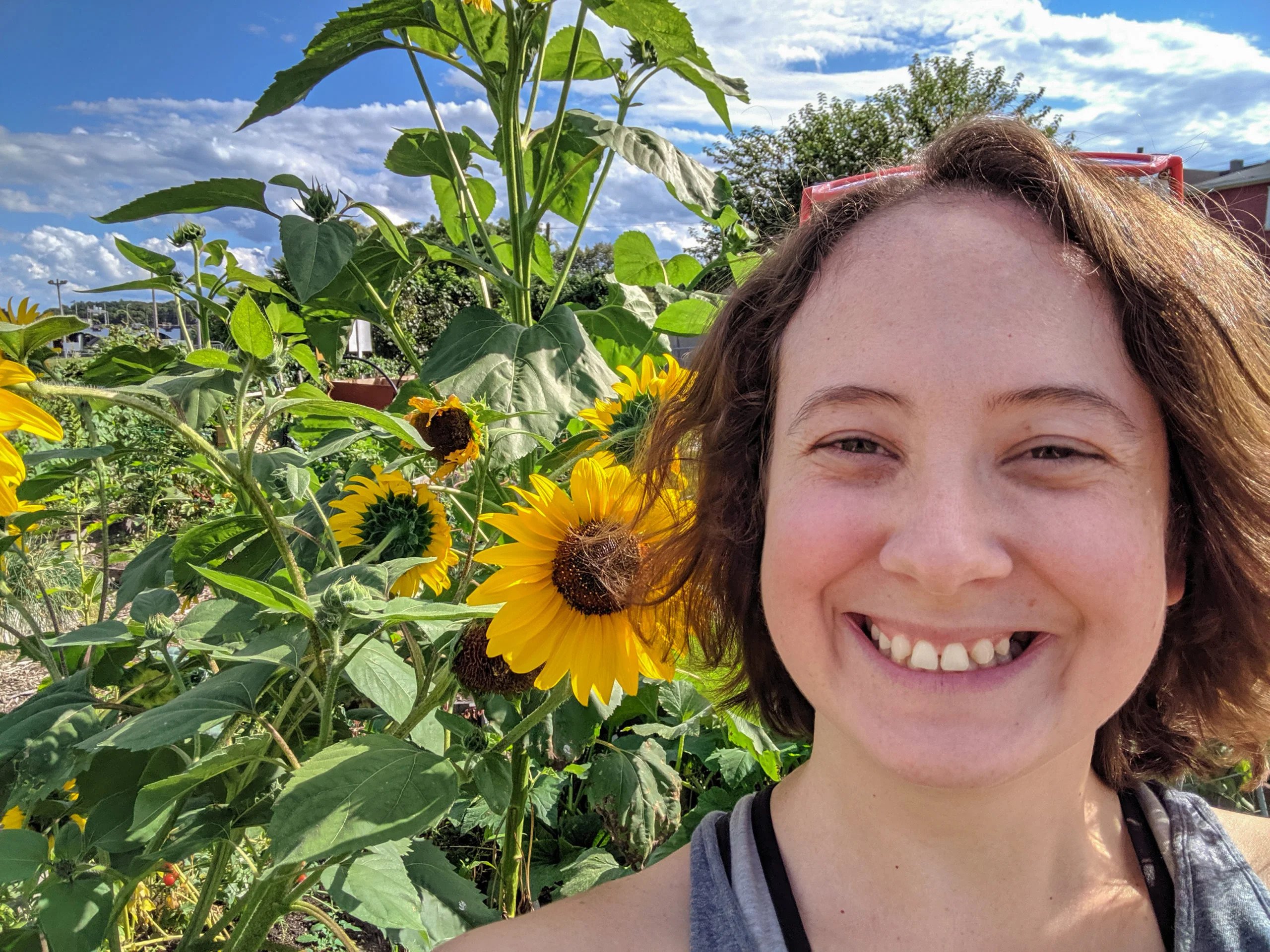
The only child of a horticulturist and an English teacher, Liz Baessler was destined to become a gardening editor. She has been with Gardening Know how since 2015, and a Senior Editor since 2020. She holds a BA in English from Brandeis University and an MA in English from the University of Geneva, Switzerland. After years of gardening in containers and community garden plots, she finally has a backyard of her own, which she is systematically filling with vegetables and flowers.
- Bonnie L. GrantWriter